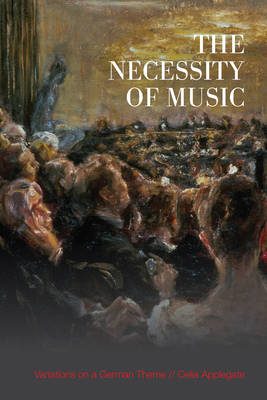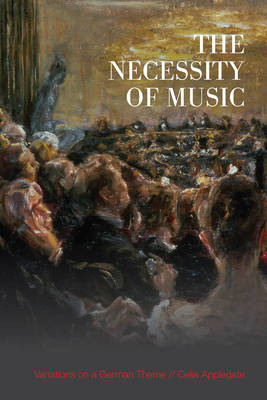
- Afhalen na 1 uur in een winkel met voorraad
- Gratis thuislevering in België vanaf € 30
- Ruim aanbod met 7 miljoen producten
- Afhalen na 1 uur in een winkel met voorraad
- Gratis thuislevering in België vanaf € 30
- Ruim aanbod met 7 miljoen producten
Omschrijving
In The Necessity of Music, Celia Applegate explores the many ways that Germans thought about and made music from the eighteenth- to twentieth-centuries. Rather than focus on familiar stories of composers and their work Applegate illuminates the myriad ways in which music is integral to German social life. Musical life reflected the polycentric nature of German social and political life, even while it provided many opportunities to experience what was common among Germans. Musical activities also allowed Germans, whether professional musicians, dedicated amateurs, or simply listeners, to participate in European culture. Applegate's original and fascinating analysis of Mendelssohn, Schumann, Brahms, Wagner, and military music enables the reader to understand music through the experiences of listeners, performers, and institutions. The Necessity of Music demonstrates that playing, experiencing, and interpreting music was a powerful factor that shaped German collective life.
Specificaties
Betrokkenen
- Auteur(s):
- Uitgeverij:
Inhoud
- Aantal bladzijden:
- 416
- Taal:
- Engels
- Reeks:
Eigenschappen
- Productcode (EAN):
- 9781487520489
- Verschijningsdatum:
- 13/04/2017
- Uitvoering:
- Paperback
- Formaat:
- Trade paperback (VS)
- Afmetingen:
- 150 mm x 229 mm
- Gewicht:
- 589 g

Alleen bij Standaard Boekhandel
Beoordelingen
We publiceren alleen reviews die voldoen aan de voorwaarden voor reviews. Bekijk onze voorwaarden voor reviews.









